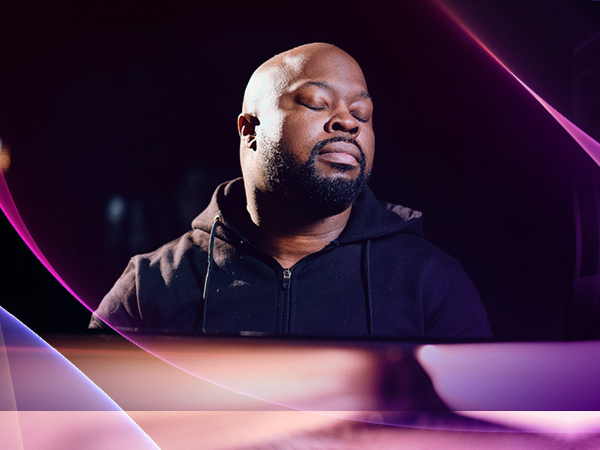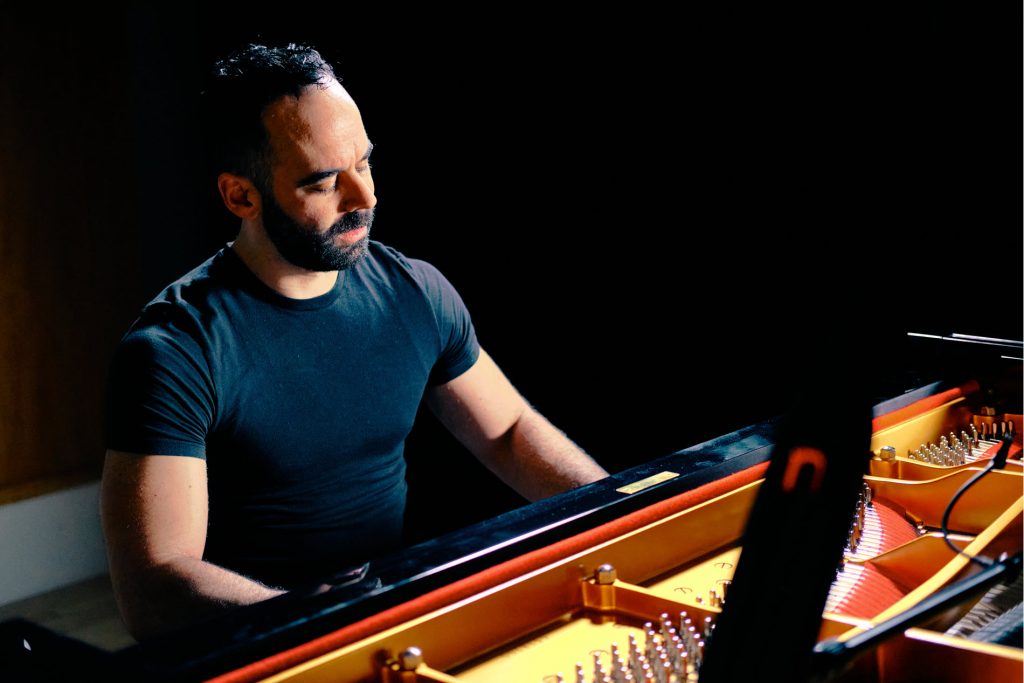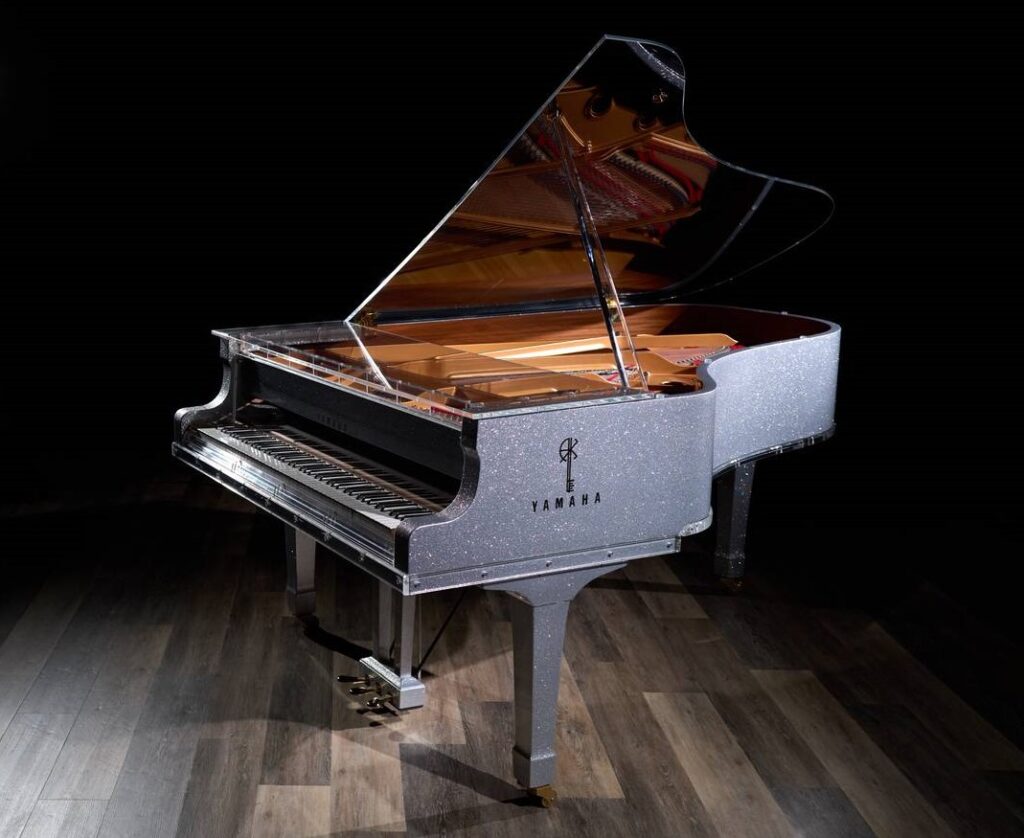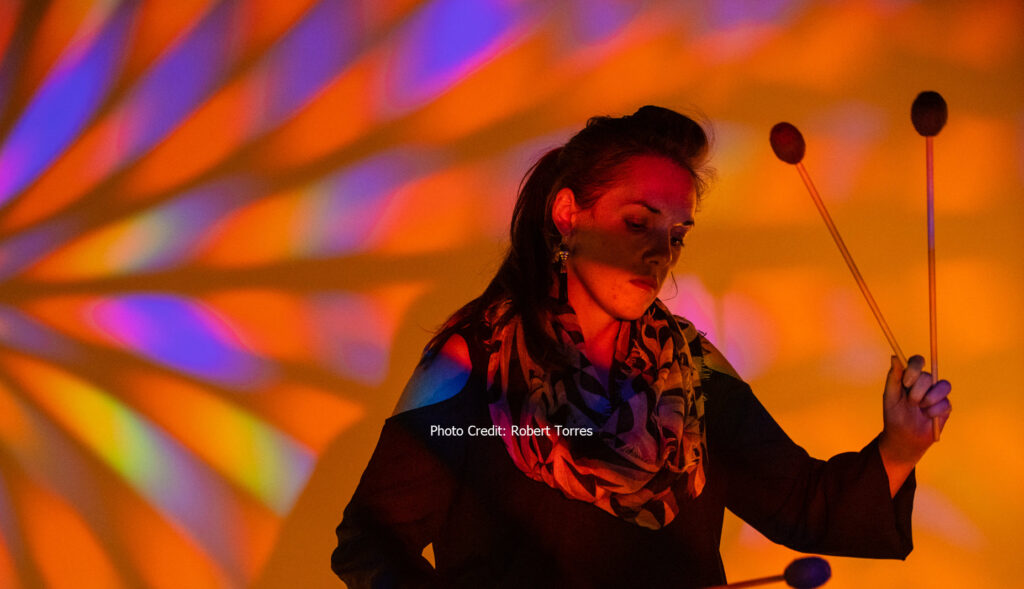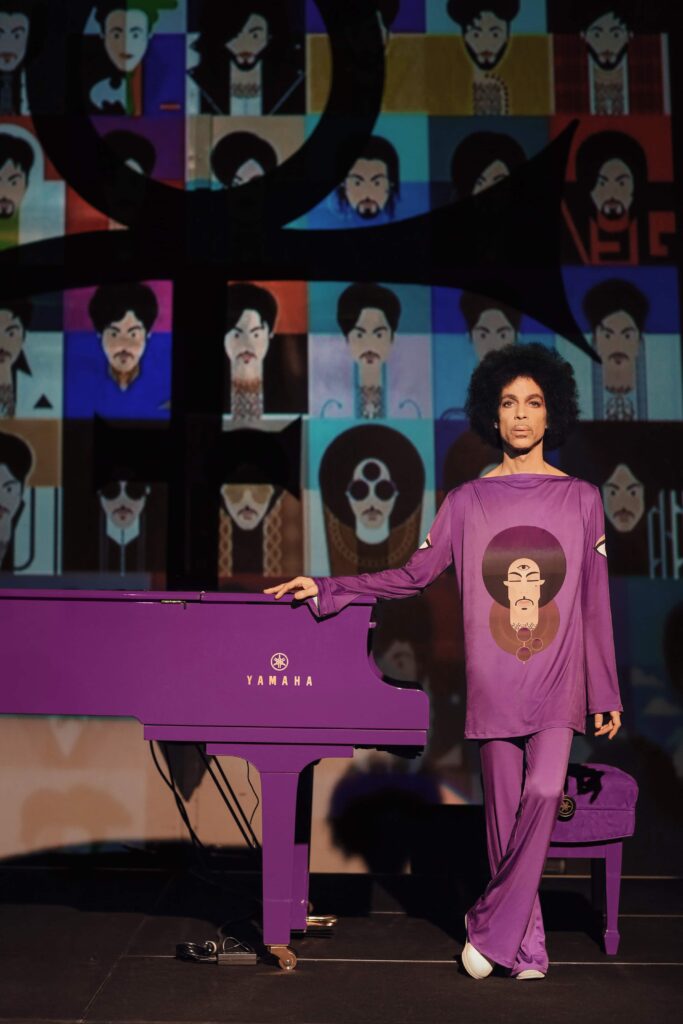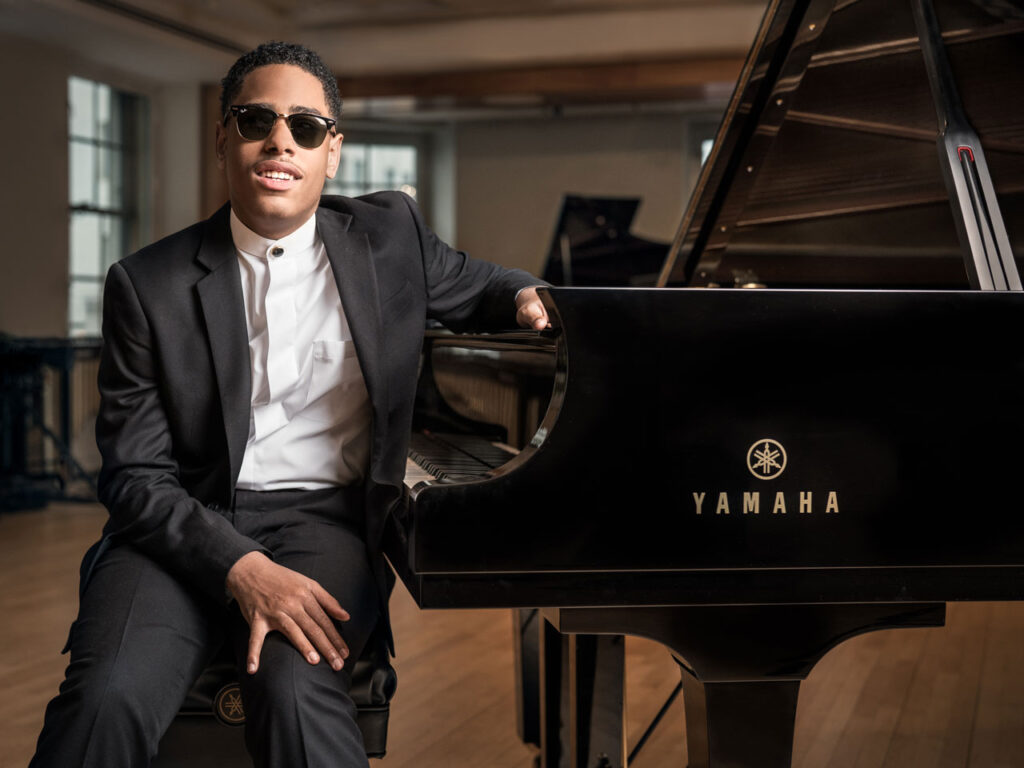Tagged Under:
Sara Davis Buechner Finds Pride Through Music
On achieving lofty goals and remaining true to one’s self.
Yamaha Artist Sara Davis Buechner never set out to become a role model. For the first few decades of her life, her focus was squarely on becoming a world-class concert pianist.
After achieving that lofty goal, winning international piano competitions and performing with major orchestras all over the world, Buechner felt that she could no longer ignore a key part of her identity. Yet when she finally made her debut as a trans woman, she lost almost everything: concert presenters rescinded their offers, performing dates disappeared and she found herself totally shunned by the concert world.
Her dedication to piano never faltered, though, and as social tides turned, Buechner slowly rebuilt her career and relationships. Today she is a distinguished, sought-after full-time professor of piano with a full studio schedule of students at Temple University, and she enjoys a concert calendar filled with engagements on recital stages and with symphony orchestras all over the world.
To mark Pride Month, Buechner sat down with us to share her story, talk about her impressive career and share her latest multi-disciplinary projects, in addition to reflecting on how she became an unexpected role model through the healing and connecting power of music.
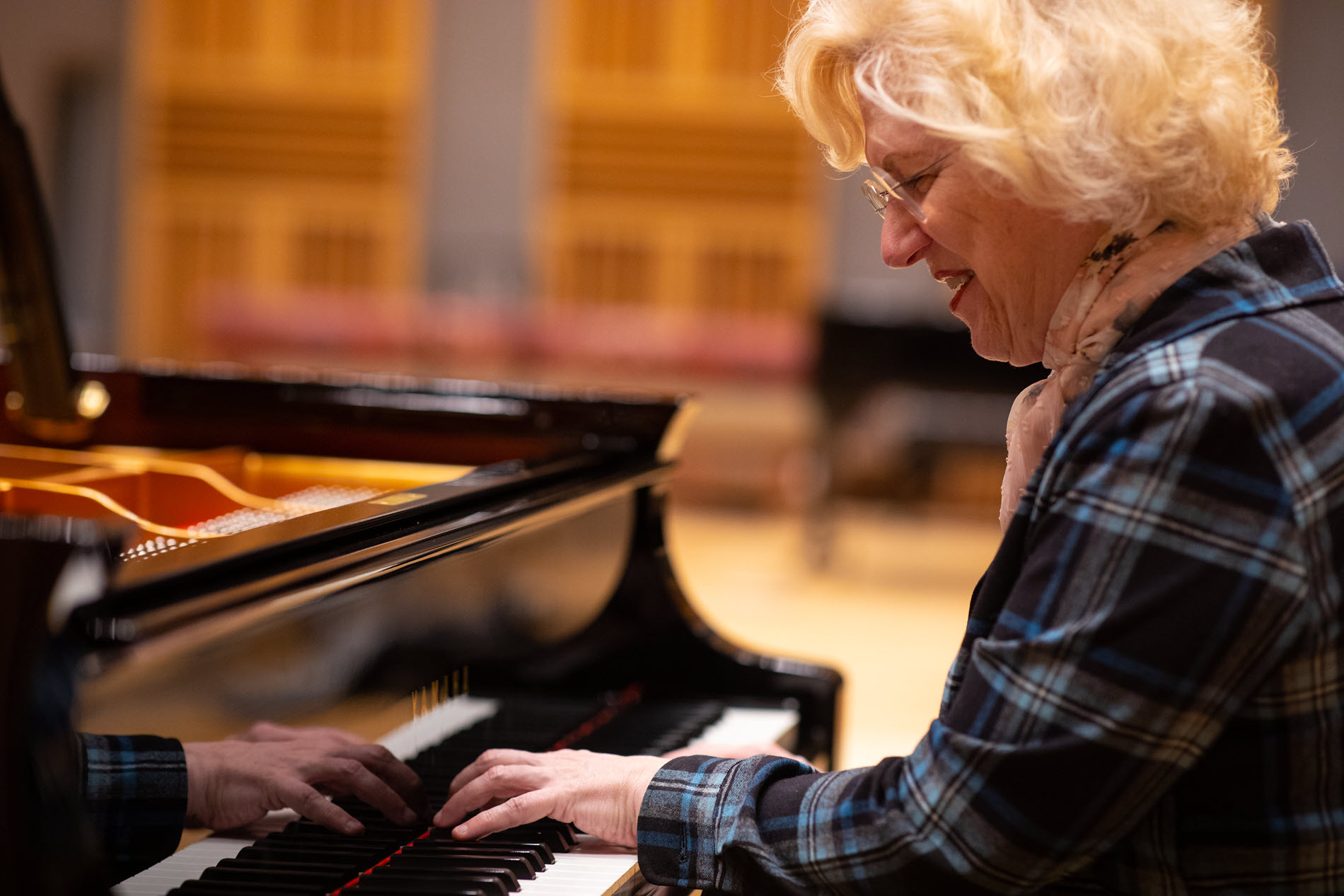
Music as Salvation
During Buechner’s early childhood in the Baltimore area, she imagined herself having a wide variety of future jobs, even briefly entertaining becoming a pig farmer (something that would later influence her most recent work) before embarking on a career as a classical pianist.
Though talented in music, she struggled as a young adult with questions about identity and crippling bouts of loneliness, and any time she tried to express who she knew herself to be, she was dismissed or bullied. It was the pre-internet days, with scant information on the LGBTQ+ community, leaving Buechner feeling isolated and shunned. She tried to bury her feelings in her love of Mozart melodies, listening to classical music and playing piano. In some ways, it became her religion and salvation.
Debuting as Sara
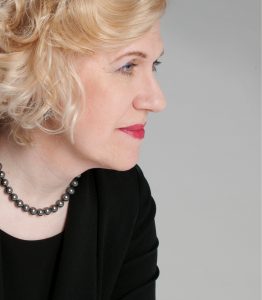
When Buechner left for college, she immersed herself in music at Juilliard and the vibrancy of New York, with all its cultures, flavors and arts. “This is where life really is at its most fun,” she remembers thinking, “when you can open your eyes and look at what variation is all about — how crucial it is, and how much meaning it gives to life.”
But despite the positive experiences the city offered, keeping her authenticity hidden began to take a toll. Buechner thrived onstage, but in private, she was losing hope.
Things began to change when she started reading books on transgender people and learned about internet chat rooms. Soon, she realized she was not alone. “That gave me [the] confidence to follow where my heart was telling me to go for so long,” she says.
When Buechner finally took the leap to transition and reemerge as Sara, she lost jobs, performances, and professional and personal relationships. But she knew that her life depended on stepping into her truth, and that gain was worth all the other losses. As time went on, Buechner gradually was welcomed back into the world of classical music, where her extraordinary musical gifts continue to be celebrated to this day.
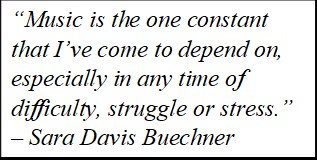
Sara Davis Buechner has gone on to achieve incredible success, giving prestigious recitals and garnering awards around the globe as well as releasing nearly a dozen recordings, yet music hasn’t lost its magical effect on her. When asked if it still has the power to comfort her when things get rough, Buechner emphatically says yes — every day of her life.
“Music is the one constant that I’ve come to depend on, especially in any time of difficulty, struggle or stress,” she explains. “I’ll sit down at the keyboard, and particularly if it’s one of the composers I’ve most loved and learned from all my life — Mozart, Schubert, Scarlatti, Poulenc, Busoni — there’s a kind of integrity that comes out of it that centers me. It’s good to have an anchor in life, and I don’t have any better anchor than music.”
The Themes and Rhythms of Life
Lately, Buechner has found herself in a time of reflection. Almost 15 years ago, a major publisher approached her about writing a book on her life. She was hesitant at first but decided to take the idea seriously, knowing her life story could resonate in some way with others.
She rented a cabin outside Louisville, Kentucky for five weeks, and took her computer, diaries and old photos with her … but no piano. Buechner’s mother had recently passed away, and emotions were high. “I decided this would be the first time in my life where I wouldn’t practice piano at all, and instead for 10 hours a day, for five weeks straight, I wrote, and it ended up becoming an almost 600-page manuscript!” Sara is currently working with an editor to trim it, with plans to publish in 2024.
Of Pigs and Pianos
As Buechner reviewed her manuscript, she started recognizing the patterns of her life. “They’re almost like rivers that intersect or diverge for a while, with characters who come and go,” she says. “As I read what I’d written, these key scenes came forth and gave me a tremendous sense of the drama of my life. I [began to] imagine how the story could be told in a theatrical way.”
Knowing that completing the book would take some time, and recognizing how comfortable she is on stage, Buechner, with the encouragement of some trusted colleagues, decided to turn the manuscript into a stage production, distilling her story into a one-woman show called “Of Pigs and Pianos.” She premiered the show this past year in New York and Minneapolis, regaling the audience with the raw, poignant and often hilarious ups and downs of her personal and professional life through spoken word, images, and of course, music played on her Yamaha piano.
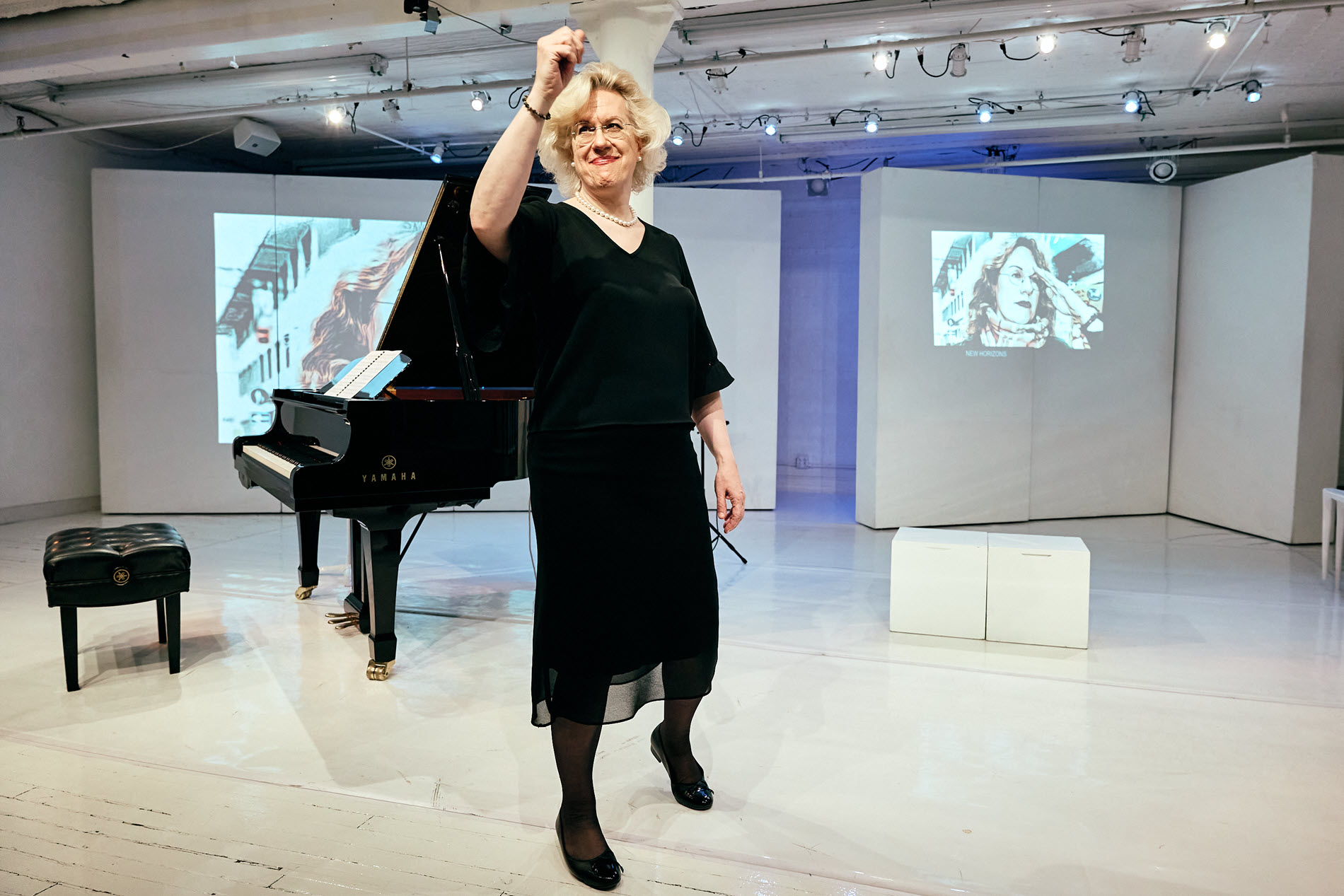
Buechner chose a diverse mix of music for the show, with each having a specific meaning from various signposts of her life. This includes traditional classical music she grew up on, Latin music she came to learn via Cuban musicians, and Japanese études that reflect her love of that country and its language, all performed in a style that brings electricity and passion to the stage.
“What I want to do in the show is to communicate a reflection of my life as a transgender person,” she says, “and also as a pianist of transcendent aspiration.” “Of Pigs and Pianos” not only explores her life but carries universal themes that can resonate with anyone who’s been picked on, struggled with identity, or battled professional pressures.
Buechner has been especially moved by the audience members who approach her after her performances, whether it’s because they have a trans relative, or because they can relate to a lifetime of piano study. The show has been so successful that she plans to take it to more venues in the future.
In addition to all these many activities, Buechner also teaches at Temple University in Philadelphia. In July, she’ll be a performer and keynote speaker on behalf of Yamaha at the National Conference on Keyboard Pedagogy, and she’s planning concerts in Japan, along with her first tour in Indonesia. She’s also working on a solo recital in New York next year, where she’ll premiere the works of a notable Hungarian jazz pianist.
An Unexpected Role Model
“Being a role model is not something I’ve necessarily chosen, but it’s who I am,” Buechner says. While music has been crucial to her life, she’s keenly aware how her performances — and sometimes mere visibility — have impacts outside herself. She knows that trans people and family of trans people often attend her shows, and she wants them to feel a sense of pride as they sit in the audience.
And whenever she does have to deal with unfriendly people, she reminds herself of her remarkable accomplishments and the knowledge that by putting on the best piano show possible, she is sending a powerful message that, as she puts it, “trans people are part of the human family, and we have a place at the table (or on the stage) like anyone else.”
After decades as an internationally renowned pianist, Sara Davis Buechner shows no signs of slowing down. Her future is bright, and she also takes joy in knowing that the future is even brighter for younger musicians and trans people. As long as she has time left, Buechner says, she’ll keep using her creativity and passion to leave the world a better place and help others do the same. And that’s certainly something to be proud of.
Learn more about Sara at http://saradavisbuechner.com/










